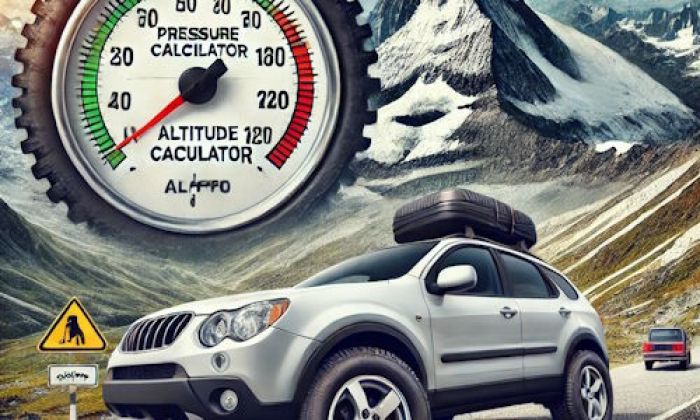Toyota has always been good at building engines. Nearly all new engines by Toyota have a wonderful displacement to power ratio and offer cool driving. We can't remember an official Toyota engine that would be considered bad for a certain model. But sometimes, these engines are not as durable as you may want.
What about the Toyota Tacoma 3.5L V6 2GR-FKS engine? We've been speaking just recently about the longevity of the Tacoma. Now, let's pay more attention to the latest generation of the pickup truck, and let's see whether the main engine of this truck is good or not. We want to see all the main specs, features, problems, lifespan, and any other facts that would be useful for the owners of the truck.
.jpg)
Key features and my opinion about the engine
- Production years:2015-now
- Average lifespan of 2GR-FKS:190,000-220,000 miles
- Fuel supply type:combined injection (direct + port)
- Power range:280-315 hp
- Fuel efficiency:average
- Engine block material:aluminum
- Engine reliability score:medium
- The most common problems:oil leaks are common, uneven idling RPM, low-pressure fuel pump problems, water pump issues.
What do we know about the 3.5 V6 in the Tacoma?
First of all, this engine is not that fresh. It wasn't made in 2021 to power the Tacoma. It appeared first in 2015 in the Lexus RX350. The code of this engine is 2GR-FKS. This is a wonderful and technological V6 engine with a VVT-i system, Atkinson cycle, and many other important changes compared to older V6 engine constructions by Toyota.
In 2016 the engine was introduced for the new generation of the Tacoma. It appeared to be an optimal engine that became really popular among American buyers of the truck. Compared to the base 2.7-liter engine, the V6 was much more interesting in terms of power, torque, and also some other features.
Here are some specs for your comparison:
- 278 horsepower doesn't seem too much, but it's still a good result;
- 265 lb-ft of torque is a good way to pull a truck;
- the engine is not equipped with any turbochargers, it's just a simple naturally aspirated unit;
- the hybrid versions of the RX and Highlander were based on this engine but changed the code to 2GD-FXS;
- the engine is relatively simple, but the head construction makes it hard to maintain and repair;
- the engine may come with a 6-speed automatic or 6-speed manual transmission;
- the engine is relatively economical - you will get 24 mpg on the highway and about 19 mpg in the city;
- the engine is thought to be extremely durable, but it will still need a lot of maintenance after it hits high mileage.
We know a lot about this engine because it has already been used in a big bunch of Toyota and Lexus cars. A lot of buyers have already had the chance to write their reviews and to say what they love and don't like in this engine.
Even though we know a lot of Toyota owners who don't like many things in this 3.5 V6 engine, we are pretty sure it's better than average. It is absolutely enough for the Tacoma truck and it has good power to economize fuel and pull any kind of trailer. But for Lexus vehicles, the engine was reset to show more power and more fun when driving.
What's the model range of this engine?
It all started with the RX, but when the company understood that the engine was one of the best ones in their lineup, they continued installing it in many different vehicles. People like something that is not turbocharged, has good displacement, and is potentially very durable.
So, the 3.5L V6 has been installed in such models:
- Toyota Tacoma;
- Toyota Highlander;
- Toyota Sienna;
- Toyota Camry;
- Toyota Alphard;
- Toyota Avalon;
- Lexus GS;
- Lexus RX;
- Lexus LS;
- Lexus IS;
- Lexus ES;
- Lexus RC;
- Lexus LM.
A very long list of vehicles proves that the engine wasn't bad at all. It's also cool that the company equipped so many luxurious Lexus cars with this engine being really sure that the unit was reliable and couldn't cause a lot of problems.
What about the longevity of the 3.5 V6 by Toyota?
Longevity is one of the most important factors in choosing an engine for your vehicle. If we speak about the Tacoma, you have two options - the 2.7 4-cylinder engine and the 3.5 V6. The latter should be more durable because it offers bigger displacement, more power, and more technologies. But in fact, these engines aren't both brilliant in terms of reliability.
Both Tacoma engines will go approximately 220,000 miles. We know some engines that were broken at 150,000 miles and repairing them appeared to be as expensive as swapping. But most of these engines easily go up to 200,000 miles and only then start showing many minor problems. Big problems come with higher mileage.
So, if you own a Tacoma with the 3.5-liter V6 engine, better get rid of it once it hits the 200,000-mile mark. Also, don't buy a used Tacoma that has more than 150,000 miles on the clock because the vehicle is going to die soon.
Which transmission should I choose for the 3.5L V6 Toyota Tacoma?
This engine was equipped with two kinds of transmissions.
The majority of trucks are sold with the 6-speed automatic transmission which is actually very good and reliable. You will not have problems with the transmission up to 150,000 or even 200,000 miles, so we can say that it can work as long as the engine works.
The manual transmission lives longer than the automatic one. So, you will probably drive your Tacoma with the manual transmission without any problems connected with the gearbox. But this is not a very common choice, so we don't have many reviews about how it works and whether it's efficient or not.
What are the problems with the Tacoma 3.5L engine?
Unfortunately, all new engines have some problems. The first reason is that car manufacturers don't want their cars to last for many years without any problems. The second reason is that manufacturers need to think about ecology. It means they keep introducing new technologies that reduce emissions but they also reduce the engines' longevity.
Every generation of Toyota engines has a growing number of problems and the mileage of these engines keeps deteriorating. It's bad because you will drive your new cars with the thoughts of buying a new one.
Here are some problems with the 3.5L V6 in the Toyota Tacoma:
- Fuel pump problems. You may think that this is not a big deal, but just learn how much the original high-pressure fuel pump is in a Toyota shop and you'll be shocked. This pump can also be the reason for injection problems.
- Direct and port injection problems. This engine in different cars uses direct or port injection types. They both may cause big problems and become the reasons for a very expensive repair.
- Numerous leaks. Oil and antifreeze keep leaking at high mileage from all connections. We would recommend making a revision of all pipes and connections at 100,000 miles and then every 20,000 miles. This will help you avoid many problems.
- Ecology equipment problems. Unfortunately, all the ecology equipment in the 3.5 V6 by Toyota doesn't work properly for a long time. It starts malfunctioning and you see those annoying messages on your dashboard nearly every day.
- Oil consumption. The Tacoma can be used to tow something and this is a problem for this engine. It doesn't like high loads and overheating. It needs a lot of attention and a good oil in this case.
- Bad maintenance problems. Many owners don't buy original oil, filters, and some other parts for regular maintenance. And this is a big mistake. You should use original parts because any other ones will work for a long time.
We can continue listing the problems of the Tacoma engine because we've read a lot of reviews. We saw people describing how they needed to swap the engine because of the fatal failures at 100,000 miles.
So, we recommend maintaining this engine with original oil and parts, paying attention to all minor problems and leaks. Also, go to an official dealer or at least to the specialized Toyota repair shop because the engine is not that easy to maintain.
Final words
We know that still a lot of truck buyers prefer bigger engines. They think that these engines are more powerful, so they are more durable and have more advantages over smaller engines. But in the case of the Tacoma, we wouldn't say that the 3.5L V6 is much better than the base 2.7-liter engine. They are both not very durable, but the base engine is much cheaper to maintain and repair.
We don't want to say that the 3.5L 2GR-FKS engine in the Tacoma is bad. It's still a good modern unit that is perfect compared to some other engines with the same specs. But it also has numerous common problems you need to know about.
About the authors
The CarAraC research team is composed of seasoned auto mechanics and automotive industry professionals, including individuals with advanced degrees and certifications in their field. Our team members boast prestigious credentials, reflecting their extensive knowledge and skills. These qualifications include: IMI: Institute of the Motor Industry, ASE-Certified Master Automobile Technicians; Coventry University, Graduate of MA in Automotive Journalism; Politecnico di Torino, Italy, MS Automotive Engineering; Ss. Cyril and Methodius University in Skopje, Mechanical University in Skopje; TOC Automotive College; DHA Suffa University, Department of Mechanical Engineering






Add comment